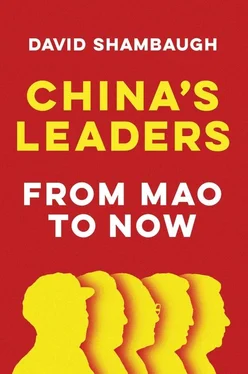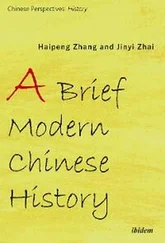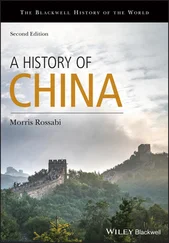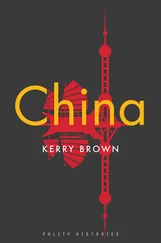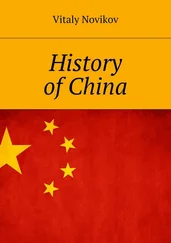Keeping these cultural and systemic characteristics that affect all Chinese leaders in mind, let us now move sequentially to five successive chapters on individual Chinese leaders since 1949. In Chapter 7we will consider them together as a group and offer concluding observations on China’s leaders from 1949 to 2020.
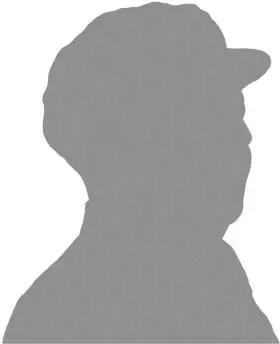
1 1. See Orville Schell and John Delury, Wealth and Power: China’s Long March to the 21st Century (New York: Random House, 2014).
2 2. Max Weber, Politics as a Vocation (1919): https://web.archive.org/web/20130319092642/http://anthropos-lab.net/wp/wp-content/uploads/2011/12/Weber-Politics-as-a-Vocation.pdf.
3 3. James MacGregor Burns, Leadership (New York: Harper & Row, 1978). Burns also wrote a second volume just on transformative leadership: James MacGregor Burns, Transforming Leadership (New York: Atlantic Monthly Press, 2003).
4 4. Ibid., p. 4.
5 5. Daniel Goleman, “Leadership That Gets Results,” Harvard Business Review (March–April 2000).
6 6. See, for example, Tomas Chamorro-Premuzic and Michael Sanger, “What Leadership Looks Like in Different Cultures,” Harvard Business Review, May 6, 2016.
7 7. Fred I. Greenstein, The Presidential Difference: Leadership Style from FDR to George W. Bush (Princeton: Princeton University Press, 2004).
8 8. See several books by Jerrold Post: Narcissism and Politics: Dreams of Glory (Cambridge: Cambridge University Press, 2015); Leaders and Their Followers in a Dangerous World: The Psychology of Political Behavior (Ithaca: Cornell University Press, 2004); Dangerous Charisma (New York: Pegasus Books, 2019). Also see Dean B. McFarlin and Paul D. Sweeney, Where Egos Dare: The Untold Truth About Narcissistic Leaders—and How to Survive Them (N.P.: Kogan Page, 2002).
9 9. While this argument has been made by several biographers of Mao, it is most systematically argued by Lucian Pye in Mao Tse-tung: The Man in the Leader (New York: Basic Books, 1976).
10 10. Edgar Snow, Red Star Over China (New York: Grove Press, 1968), p. 132.
11 11. Richard H. Solomon, Mao’s Revolution and the Chinese Political Culture (Berkeley: University of California Press, 1971), chapter 2.
12 12. Edgar Snow, Red Star Over China, op. cit.
13 13. Ibid., p. 131.
14 14. Bruce Gilley, Tiger on the Brink: Jiang Zemin and China’s New Elite (Berkeley: University of California Press, 1998), p. 10.
15 15. See the description of this period in Robert Lawrence Kuhn, The Man Who Changed China: The Life and Legacy of Jiang Zemin (New York: Crown Publishing, 2004), p. 31.
16 16. See Jerrold Post, Leaders and Their Followers in a Dangerous World, op. cit., pp. 22–23. Post draws on the work of Daniel J. Levenson, The Seasons of a Man’s Life (New York: Knopf, 1978).
17 17. Jerrold Post, ibid., pp. 24–40.
18 18. Leon Festinger, A Theory of Cognitive Dissonance (Stanford: Stanford University Press, 1957).
19 19. In the case of Asian leaders, see Ramachandra Guha (ed.), Makers of Modern Asia (Cambridge, MA: The Belknap Press, 2014).
20 20. For studies of the CCP see Franz Schurmann, Ideology and Organization in Communist China (Berkeley: University of California Press, 1968, second edition); Richard McGregor, The Party: The Secret World of China’s Leaders (New York: Harper, 2012); David Shambaugh, China’s Communist Party: Atrophy & Adaptation (Berkeley and London: University of California Press, 2013); Bruce Dickson, The Dictator’s Strategy for Survival (New York: Oxford University Press, 2016.
21 21. For the CCP Constitution see: Constitution of the Communist Party of China, adopted October 24, 2017: http://www.xinhuanet.com//english/download/Constitution_of_the_Communist_Party_of_China.pdf; for the PRC Constitution see: Constitution of the People’s Republic of China, adopted March 14, 2004: http://www.npc.gov.cn/zgrdw/englishnpc/Constitution/node_2825.htm.
22 22. The classic works on Chinese factionalism are Lucian Pye, The Dynamics of Chinese Politics (Cambridge, MA: Oelgeschlager, Gunn & Hain, 1981); Andrew Nathan, “A Factionalism Model of CCP Politics,” The China Quarterly, No. 53 (January–March 1973), pp. 34–66; Tang Tsou, “Prolegomenon to the Study of Informal Groups in CCP Politics,” The China Quarterly, No. 65 (January 1976), pp. 98–114; Martin King Whyte, Small Groups and Political Rituals in China (Berkeley: University of California Press, 1974).
23 23. This has been a reputational problem for communist parties for decades. See, for example, Milovan Đilas, The New Class: An Analysis of the Communist System (New York: Harcourt Brace Jovanovich, 1957).
24 24. See John Burns, The Chinese Communist Party Nomenklatura System: A Documentary Study of Party Control of Leadership Selection (Armonk, NY: M.E. Sharpe, 1989); John Burns, “China’s Nomenklatura System,” Problems of Communism (September–October 1987); Melanie Manion, “The Cadre Management System Post-Mao: The Appointment, Promotion, Transfer, and Removal of Party and State Leaders,” The China Quarterly, No. 102 (June 1985), pp. 203–253.
25 25. Mao Zedong, “Problems of War and Strategy,” Quotations from Chairman Mao (Beijing: Foreign Languages Press, 1972), p. 61.
26 26. See: https://www.marxists.org/reference/archive/mao/selected-works/volume-4/mswv4_65.htm.
27 27. Ibid.
28 28. The classic study of this subject is Lyman P. Van Slyke, Enemies and Friends: The United Front in Chinese Communist History (Stanford: Stanford University Press, 1967).
29 29. See James Reardon-Anderson, Yenan and the Great Powers (New York: Columbia University Press, 1980).
30 30. For an excellent description of the role of ideology in the CCP and Chinese political system see Franz Schurmann, Ideology and Organization in Communist China, op. cit., chapter 1.
31 31. Xinhua News Agency, Constitution of the Communist Party of China: http://www.xinhuanet.com//english/download/Constitution_of_the_Communist_Party_of_China.pdf.
32 32. Lucian W. Pye, The Mandarin and the Cadre: China’s Political Cultures (Ann Arbor: University of Michigan Center for Chinese Studies, 1988), p. 166.
33 33. See the discussion in my book China’s Future (Cambridge: Polity Press, 2016), chapter 4.
Конец ознакомительного фрагмента.
Текст предоставлен ООО «ЛитРес».
Прочитайте эту книгу целиком, купив полную легальную версию на ЛитРес.
Безопасно оплатить книгу можно банковской картой Visa, MasterCard, Maestro, со счета мобильного телефона, с платежного терминала, в салоне МТС или Связной, через PayPal, WebMoney, Яндекс.Деньги, QIWI Кошелек, бонусными картами или другим удобным Вам способом.
